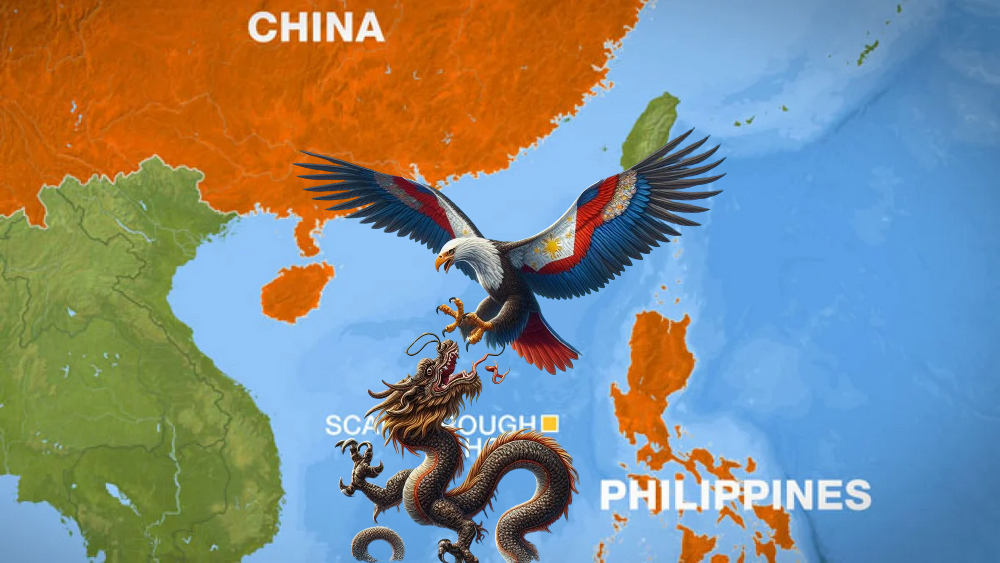
Unlike his predecessor Rodrigo Duterte, President Ferdinand Marcus has been critical of China’s violations of its maritime boundaries and has clearly stated that he will not compromise on maritime security.
- The Philippines’ president has strengthened ties with the US and has renewed relations with other regional allies such as India, Japan, and Australia to create a coalition against expansionist China.
The EDCA is the most important treaty that The Philippines signed with the US allowing American forces to train together with Filipino soldiers and be indefinitely stationed at five locations.
The Philippines, a prominent member of the ASEAN, is currently at the centre of a geopolitical game in the Asia-Pacific. Though Chinese hostility against the country and maritime incursions have been occurring for years, the Communist hegemon is now violating maritime boundaries and claiming regions that belong to the Philippines. These incidents are not a new phenomenon; they have been happening for years, with one significant occurrence in 2015 when continuous Chinese incursions into the Philippines’ maritime boundary forced the Philippines to seek help from the International Court of Justice (ICJ). The ICJ endorsed the Philippines’ position and ruled in its favour. However, despite the ICJ ruling, China failed to learn from its expansionist exploits and continued to violate international maritime treaties.
It is important to understand that since the Philippines witnessed a political change in 2022, there have been differences in its policy towards China. The former president of the Philippines, Rodrigo Duterte, opted for a less critical stance against China due to the country’s significant economic dependency on it. The Philippines has a huge economic investment from China, which acts as a barrier for leaders in the Philippines to be harsh against China, as they understand that harsh actions could harm the Philippines’ economy. Therefore, for any leader in the Philippines, the challenge is to maintain economic balance while also ensuring security.
However, since 2022, when the new president, Ferdinand Marcus Jr came into power, he has been clear that he will not compromise on maritime security. This means that while he will continue economic relations with China, but that should not give China the right to violate its maritime region. The Philippines’ president has strengthened ties with the US and signed different treaties with them. The Philippines has also strengthened its military relationship with the US and in 2023 signed the Enhanced Defense Cooperation Agreement, which allows the American forces to train together with Filipino soldiers and be indefinitely stationed at five locations.
Furthermore, President Marcos Jr has renewed relations with other regional allies such as India, Japan, and Australia to create a coalition against expansionist China. The common goal among these countries is to fight for greater transparency, inclusivity, and maintaining the rule of law in the Indo-Pacific region, which Chinese actions have threatened.
Recently, there has been a marked shift in Chinese policy towards the region, with major problems arising over many shoals, particularly the Mischief Reef. The Philippines’ World War II-era warship, the BRP Sierre Madre, which guards the region has had its logistics controlled by the Chinese who have repeatedly stopped Philippine logistics boats from reaching the warship. The Chinese have also set up floating barricades, claiming de facto control over the entire region. This issue has strained relations between the two countries and forced President Markur Jr. to sign a defence treaty with the United States of America.
Under this defence treaty, if the maritime security of the Philippines is threatened, the US will intervene to support the Philippines. This decision marks a significant shift in the Philippines’ strategic alignment, with President Markur Jr. clearly stating his preference for closer ties with the United States of America.
(Aayush is a post-graduate student in International Relations at Kalinga University, Raipur. Views and opinions expressed are the author’s own)
Aayush Pal is a freelance writer on contemporary geopolitical developments. The views expressed in his work are entirely his own.
